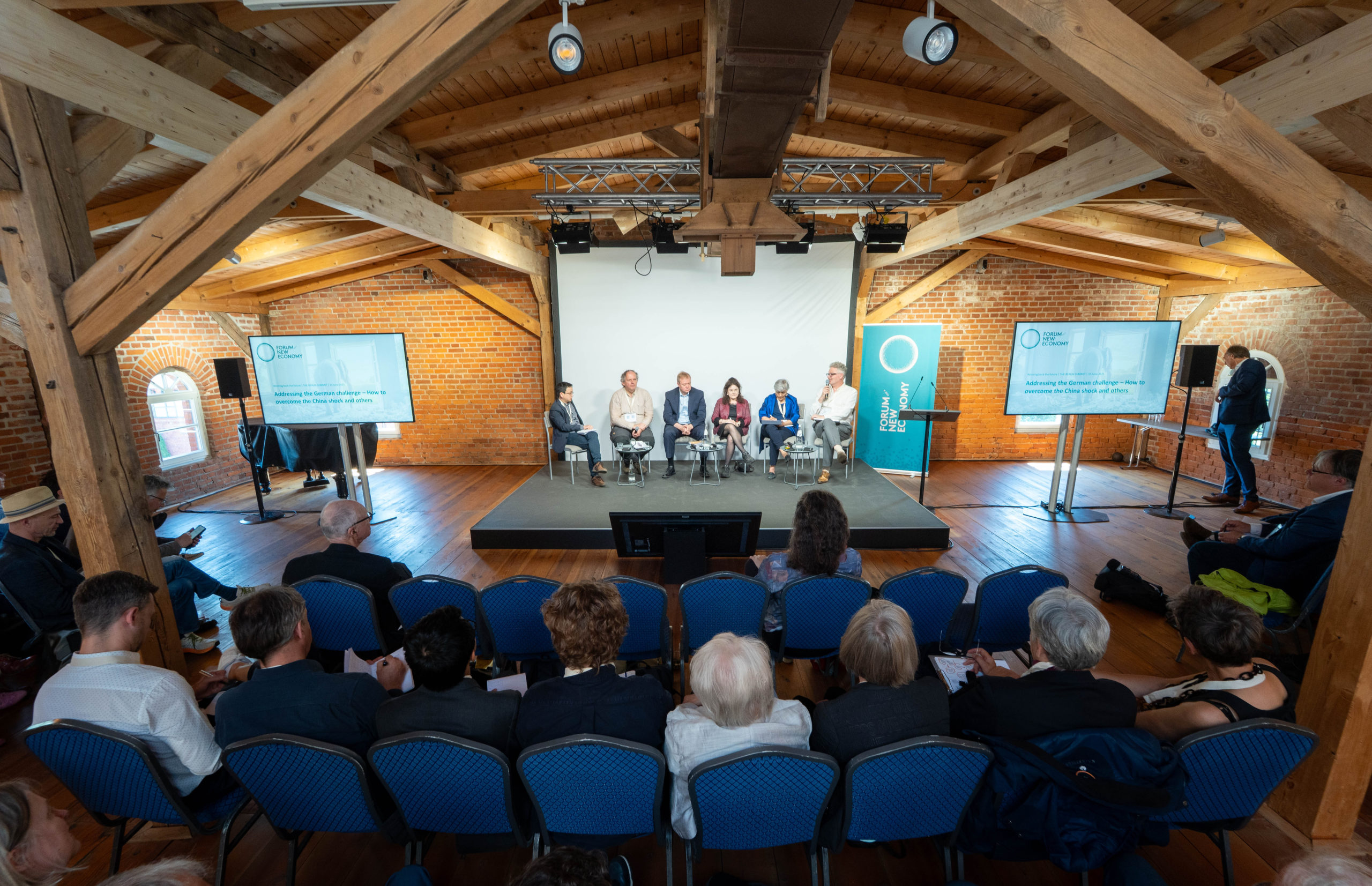NEW PARADIGM
The Berlin Summit 2025: Addressing the German challenge – How to overcome the China shock and others
China’s rise as an industrial superpower is no longer just a story of low-cost exports—it’s now a strategic challenge to Europe’s economic core. In this panel from the Berlin Summit 2025, leading economists examine what has become known as the “Second China Shock.”
BY
GERRIT TER HORSTPUBLISHED
18. JUNE 2025
At the Berlin Summit 2025, a panel moderated by Felix Lee explored the economic consequences of what many are calling the “Second China Shock,” with a focus on Germany and Europe. While the first China Shock in the early 2000s—triggered by China’s entry into the WTO—primarily affected the U.S. manufacturing base, this second wave cuts deeper. It now strikes at the high-tech sectors of advanced economies: automotive, mechanical engineering, and green technologies—Germany’s industrial core.
Dalia Marin presented striking trade data showing that since 2020, Germany’s imports from China have surged by 30%, while exports—especially in cars and machinery—have plummeted. Germany is no longer a net exporter in these sectors. She attributes this to China’s state-led industrial policy, which combines subsidies, scale learning, and technological catch-up—especially in battery production. Marin called on Europe to respond in kind: by leveraging market access to require tech transfer through joint ventures, as China once did.
Brad Setser gave a retrospective on the first China Shock in the U.S., arguing that the lack of safeguards and failure to support displaced workers led to deep social and political dislocation. For Germany, he emphasized three lessons: don’t cling to past export successes, embrace industrial policy, and avoid over-reliance on U.S.-style venture capitalism. Germany, he argued, should focus on building a resilient domestic industrial base—not just capturing profits but ensuring productive capacity remains in Europe.
Servaas Storm drew attention to the different impact timelines across Europe: countries like Italy experienced deindustrialization earlier, while Germany flourished. Now, Germany too is under pressure, and must rethink past assumptions of competitiveness through wage restraint. He called for a revival of planning, stronger public investment, and an overhaul of fiscal thinking. The crisis, he argued, is less about financial resources than about outdated economic paradigms.
Margarita Russo contributed an innovation-focused perspective, analyzing patent data in key automotive technologies. While Germany still leads in battery and EV tech by volume, China has overtaken in control systems—both in quantity and quality. Russo criticized Germany’s failure to learn from decades of industrial presence in China. Without a coherent strategy or investment in scaling up, European firms risk becoming marginal players in the transition to e-mobility.
Adam Tooze expanded the discussion to include the ecological dimension: China’s growth surge in the 2000s upended the global climate agenda. Its reaction—massive investments in renewable energy—also helped build technological dominance in that sector. Europe, meanwhile, focused too narrowly on short-term trade advantages and missed this pivot. Now, Tooze argued, Europe must catch up—not just economically, but also in shaping global energy systems.
In the final discussion, panelists agreed that Europe does not lack money—it lacks strategic vision, coordination, and political courage. The response to the China Shock should not be fear or retreat, but rather a bold rethinking of economic governance: one that centers industrial policy, unlocks fiscal capacity, and fosters deep cooperation across Europe. The shock, if seized correctly, could become an opportunity to reshape Europe’s economic future.
